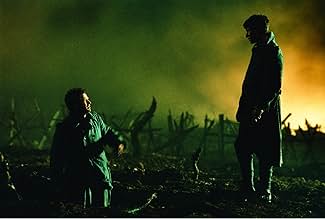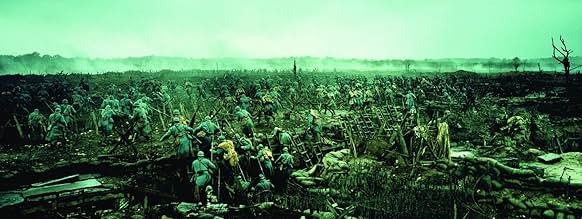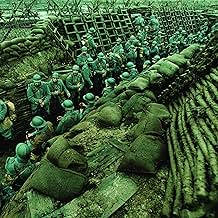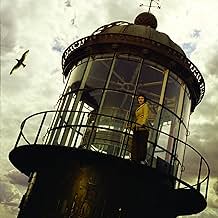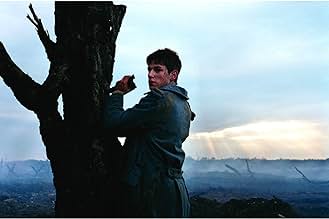Tells the story of a young woman's relentless search for her fiancé, who has disappeared from the trenches of the Somme during World War One.Tells the story of a young woman's relentless search for her fiancé, who has disappeared from the trenches of the Somme during World War One.Tells the story of a young woman's relentless search for her fiancé, who has disappeared from the trenches of the Somme during World War One.
- Nominated for 2 Oscars
- 17 wins & 35 nominations total
Jean-Pierre Darroussin
- Benjamin Gordes
- (as Jean Pierre Darroussin)
Jean-Pierre Becker
- Esperanza
- (as Jean Pierre Becker)
Jean-Paul Rouve
- Le facteur
- (as Jean Paul Rouve)
Elina Löwensohn
- La femme allemande
- (as Elina Lowensohn)
Storyline
Did you know
- TriviaWhen casting Jodie Foster, Jean-Pierre Jeunet met her in Paris at the café which was used to shoot the scenes in Le fabuleux destin d'Amélie Poulain (2001) which is near where he lives. Some tourists were at the café, knowing it was featured in the film, asked Jeunet and Foster to move out of the way (not recognizing them) so that they could take a photograph of the café.
- GoofsIn the film there is an important storyline about an albatross. However, throughout the film in all footage depicting the albatross a gannet is shown. Though a gannet is also a large seabird, it looks nothing like an albatross.
- Quotes
Ange Bassignano: [writes] "Revenge is pointless. Try to be happy and don't ruin your life for me."
- ConnectionsEdited from Le peuple migrateur (2001)
- SoundtracksÇa ne Vaut pas l'Amour
Music by François Perpignan
Lyrics by Alexandre Trébitsch
Performed by Esther Lekain
Featured review
Director Jean-Pierre Jeunet in the hit, "Amelie," employed scintillating Audrey Tatou, the most expressive young French actress in film today, to portray a whimsical and charming girl-woman in search of love. With her now as a young French rural ingénue searching for years after The Great War (aka World War I or, even better, The War to End All Wars) for a probably killed fiancé, Jeunet crafted a moving, often penetrating story centering on the charnel carnage of trench warfare.
Lame as a single-digit-age child because of polio and living with relatives who took over after her parents were killed in an accident, Mathilde is befriended by Manech (Gasparad Ulliel). Mathilde, a loner separated from her peers by her disability, and Manech become closest friends. Late adolescence brings love and lust, commitment and an engagement.
But in 1917 the French Army needed fresh meat for the bloody maw that was warfare on the almost terminally static Western Front. And off went Manech along with many others who never returned.
Employing the harshest discipline of any Western army in modern history, the French Army (which gave the world the Dreyfus trial and in World War I actually used decimation to punish mutinous regiments and divisions) sentences Manech and four others to be cast into No Man's Land without weapons, without any possibility of being allowed to return but with the macabre requirement that they respond to morning roll call if alive (not a good bet). Their alleged crime was self-mutilation to get out of combat (what we call in the American military, "SIW," Self-Inflicted Wounds).
Mathilde in 1920, steely faithful in a moving and believable way, searches fervently for her fiancé whom she believes "must" be alive somewhere, somehow. Employing artful stratagems and enlisting the willing, the paid and the dragooned, her search takes her to cities and battlefields. With resort to a child's employment of magical thinking she frequently whispers tests about what will happen in immediate, ordinary circumstances with one result "proving" for her that Manech is still alive. Tatou makes this self-deception appealing and infinitely sad.
As Spielberg did in "Saving Private Ryan," Jeunet brings the immediacy of the meat-grinding battlefield to the viewer over and over again through superb if sometimes difficult to watch cinematography. Of course no film truly captures the desperation, the epidemic fatality that gripped and demoralized the French Army after years of immobile, set-piece fighting. One needs to read Robert Graves or Siegfried Sassoon for that. But Jeunet has brought to the screen the most realistic World War I trench scenes since "All Quiet on the Western Front" (the 1930 original, of course).
Tatou is an acting tsunami here, alternately beguiling and tense and always hopeful while fighting despair. Expect to see her in many fine roles in the future. She's marvelous.
The entire cast is excellent-few are known in the U.S.
A remarkable movie with an ending that will satisfy and disturb at the same time.
Tatou and Jeunet deserve Oscar nominations.
10/10
Lame as a single-digit-age child because of polio and living with relatives who took over after her parents were killed in an accident, Mathilde is befriended by Manech (Gasparad Ulliel). Mathilde, a loner separated from her peers by her disability, and Manech become closest friends. Late adolescence brings love and lust, commitment and an engagement.
But in 1917 the French Army needed fresh meat for the bloody maw that was warfare on the almost terminally static Western Front. And off went Manech along with many others who never returned.
Employing the harshest discipline of any Western army in modern history, the French Army (which gave the world the Dreyfus trial and in World War I actually used decimation to punish mutinous regiments and divisions) sentences Manech and four others to be cast into No Man's Land without weapons, without any possibility of being allowed to return but with the macabre requirement that they respond to morning roll call if alive (not a good bet). Their alleged crime was self-mutilation to get out of combat (what we call in the American military, "SIW," Self-Inflicted Wounds).
Mathilde in 1920, steely faithful in a moving and believable way, searches fervently for her fiancé whom she believes "must" be alive somewhere, somehow. Employing artful stratagems and enlisting the willing, the paid and the dragooned, her search takes her to cities and battlefields. With resort to a child's employment of magical thinking she frequently whispers tests about what will happen in immediate, ordinary circumstances with one result "proving" for her that Manech is still alive. Tatou makes this self-deception appealing and infinitely sad.
As Spielberg did in "Saving Private Ryan," Jeunet brings the immediacy of the meat-grinding battlefield to the viewer over and over again through superb if sometimes difficult to watch cinematography. Of course no film truly captures the desperation, the epidemic fatality that gripped and demoralized the French Army after years of immobile, set-piece fighting. One needs to read Robert Graves or Siegfried Sassoon for that. But Jeunet has brought to the screen the most realistic World War I trench scenes since "All Quiet on the Western Front" (the 1930 original, of course).
Tatou is an acting tsunami here, alternately beguiling and tense and always hopeful while fighting despair. Expect to see her in many fine roles in the future. She's marvelous.
The entire cast is excellent-few are known in the U.S.
A remarkable movie with an ending that will satisfy and disturb at the same time.
Tatou and Jeunet deserve Oscar nominations.
10/10
- How long is A Very Long Engagement?Powered by Alexa
Details
- Release date
- Countries of origin
- Languages
- Also known as
- A Very Long Engagement
- Filming locations
- Héaux de Bréhat, Côtes-d'Armor, France(lighthouse exteriors)
- Production companies
- See more company credits at IMDbPro
Box office
- Budget
- $56,600,000 (estimated)
- Gross US & Canada
- $6,524,389
- Opening weekend US & Canada
- $101,749
- Nov 28, 2004
- Gross worldwide
- $69,424,389
- Runtime2 hours 13 minutes
- Color
- Sound mix
- Aspect ratio
- 2.35 : 1
Contribute to this page
Suggest an edit or add missing content



